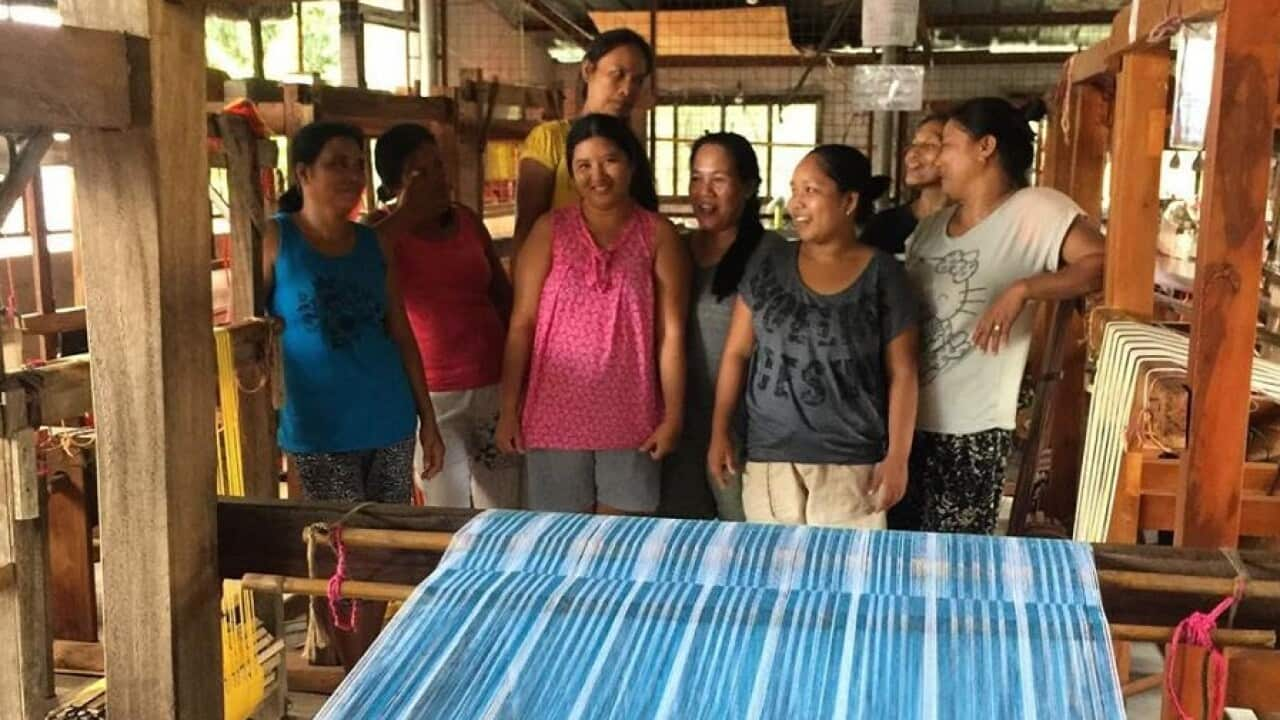Highlights
- In the middle of the face mask shortage in Metro Manila, Frances decided to ask help from her relatives based in Bicol to produce reusable abaca face masks.
“When I was in college, my first thesis proposal was a product line of eco-friendly bags. That was my dream. But my professors advised against it, due to the tight timeline, and the high required net income. So instead, I chose a more corporate enterprise,” Frances says.
After college, Frances turned her thesis into a photobooth and corporate giveaways business, one that she has successfully grown from 2013 up to now.
But when the pandemic hit, and Frances herself was running out of face masks to protect herself from the virus, she decided to create her own line of face mask products, made from a material she trusted and reminded her of home.
- Abaca, according to the Department of Science and Technology, is seven times better in terms of filtration and protection than the ordinary cloth mask.
- Through her social enterprise, Myuza, Frances helps Bicolano youth earn income to help their families.
The beloved abaca
Born to Bicolano parents - her mum hails from Catanduanes and Caramoan, while her dad is from Albay- and having spent all her summers in Bicol, Frances knew abaca was ubiquitous in Bicol.
“Everywhere, farmers harvest abaca. That was their number one source of livelihood. It’s used to make notebooks, lamps, baskets, bags, hats, furniture, and more,” Frances shares.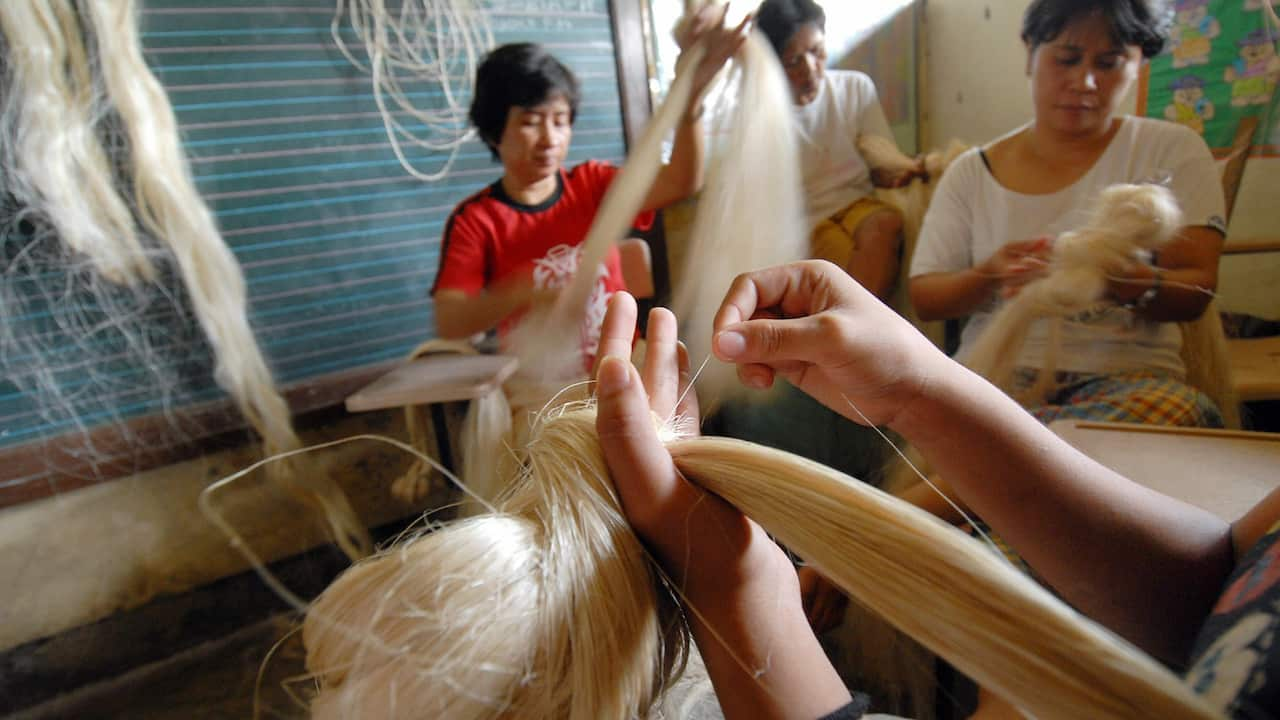 A durable and sturdy material, abaca is a species of banana tree. The Philippines is its largest raw material exporter globally, while Bicol, according to the Department of Agriculture, is the biggest abaca producer in the country.
A durable and sturdy material, abaca is a species of banana tree. The Philippines is its largest raw material exporter globally, while Bicol, according to the Department of Agriculture, is the biggest abaca producer in the country.

Women from Boyuan village near the Mayon volcano continue their livelihood of weaving abaca fiber, one of the region's chief industries Source: ROMEO GACAD/AFP via Getty Images
Lifted from its scientific name “musa textilis”, Myuza Craft Collection was born three months ago, in May 2020. It made Frances’ mum very proud.
“I told her that this is a good opportunity for business, plus I get to help fellow Bicolanos have a source of livelihood. At the same time, promote an eco-friendly Philippine-made product,” Frances says.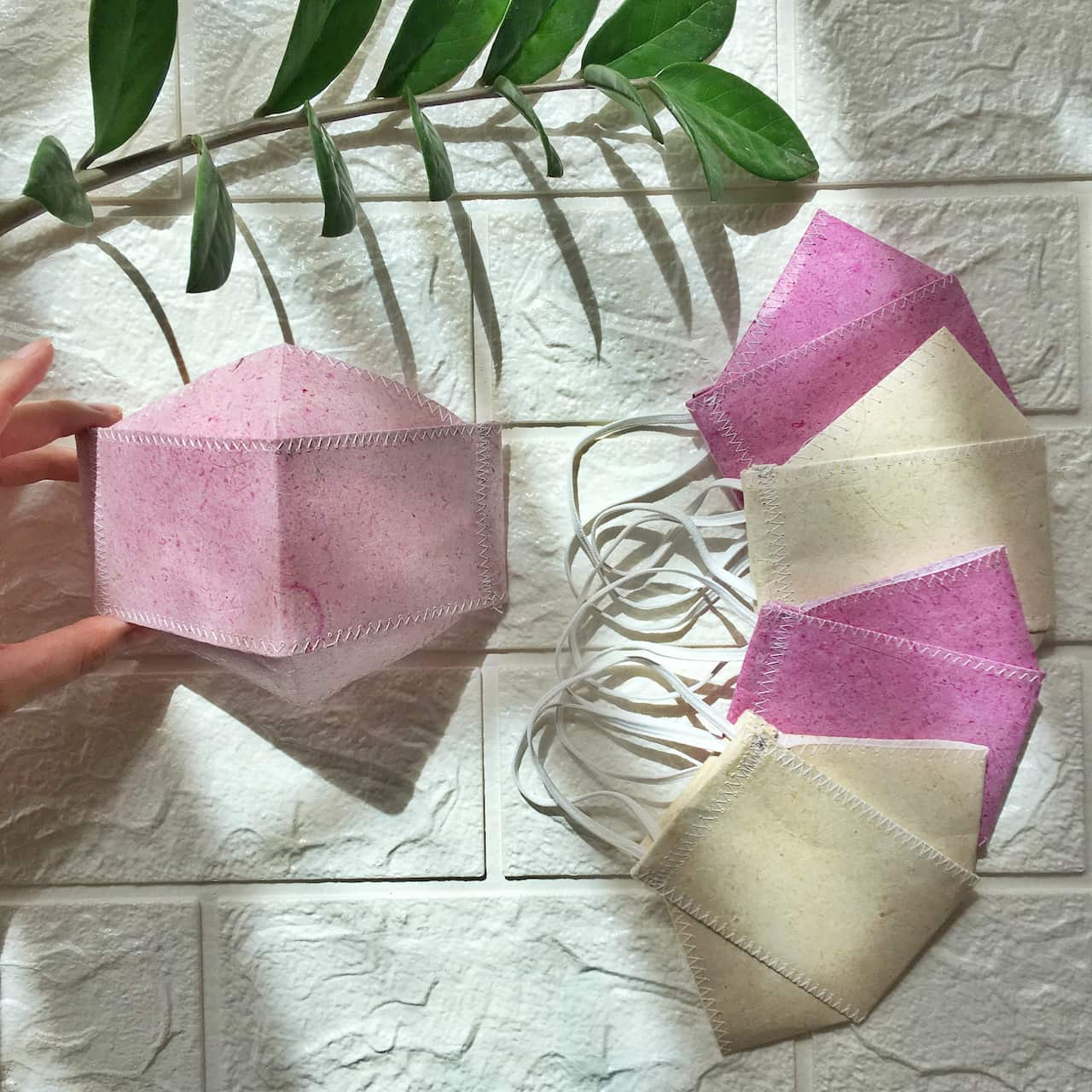 The abaca face masks are hypoallergenic, have lower water absorption, and according to the Department of Science and Technology (DOST), “abaca is seven times better in terms of filtration and protection than the ordinary cloth mask.”
The abaca face masks are hypoallergenic, have lower water absorption, and according to the Department of Science and Technology (DOST), “abaca is seven times better in terms of filtration and protection than the ordinary cloth mask.”

Source: Frances Delos Santos Peña
Helping Bicolano youth
Since Frances was in lockdown in Manila, she asked for the help of her relatives based in Catanduanes, Bicol to look for local craftsmen.
Initially, Frances wanted to train and hire out-of-school-youth. But the pandemic limited her and her relatives’ movement as well. Instead, her cousin Roselle looked for a community of experienced abaca crafters.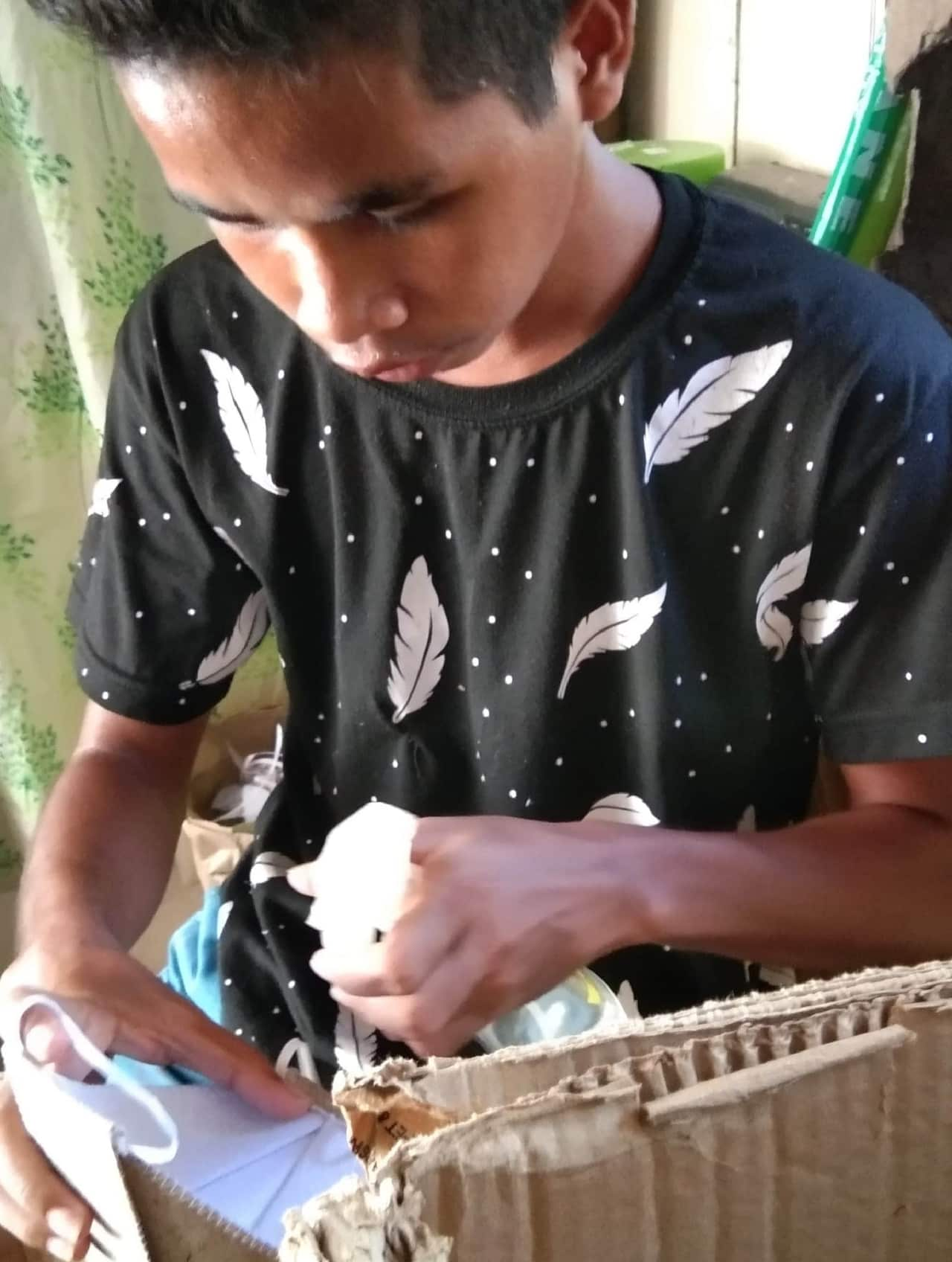 Frances’ job was to specify the design she wanted, control the quality, and find a market for the face masks in Metro Manila. And that she did with gusto.
Frances’ job was to specify the design she wanted, control the quality, and find a market for the face masks in Metro Manila. And that she did with gusto.

Source: Frances Delos Santos Peña
Today, Myuza produces 500 face masks weekly, and because the orders keep coming, she couldn’t keep up with the demand anymore.
“I started with hiring three people, now they are eight, including the three farmers who harvests the abaca,” Frances says.
Besides the quality of her reusable, eco-friendly and handcrafted face masks, Frances is most proud of how this business is helping a small community in Catanduanes.
“The sewers are Bicolano youth, college students, whose classes are suspended. Now they get to work part-time to help their families cope with this pandemic.”
With purpose
This pandemic will either bring out the worst or the best in people. For Frances, the choice was easy.
Instead of caving into the panic buying of disposable masks that will contribute further to environmental waste, Frances used her entrepreneurial gift to create something that will help people, both the users and the crafters.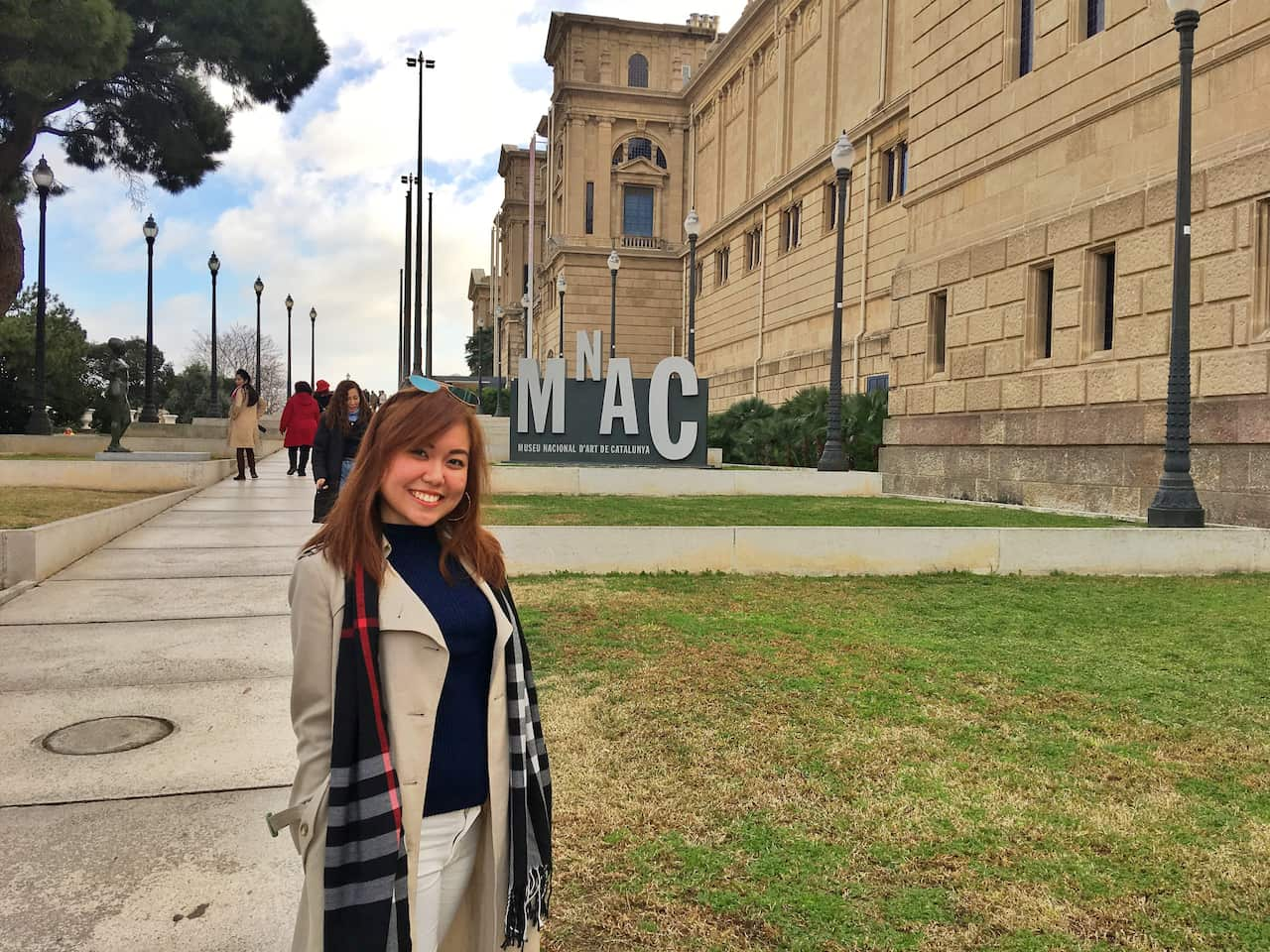 “It has a domino effect, people find that help goes around and comes around,” Frances shares.
“It has a domino effect, people find that help goes around and comes around,” Frances shares.

Source: Frances Delos Santos Peña
In the near future, Frances’ plan is simple. She hopes to find another community to help her produce more masks to meet her customers’ demand. She’s also planning to fulfil her rejected thesis proposal of creating a line of eco-friendly bags, using abaca, of course.
And when this pandemic ends, or when it’s safe for her and her family, she hopes to go back to Bicol, meet and hang out with the crafters, share stories, and to thank them personally.
ALSO READ/LISTEN TO
Share

